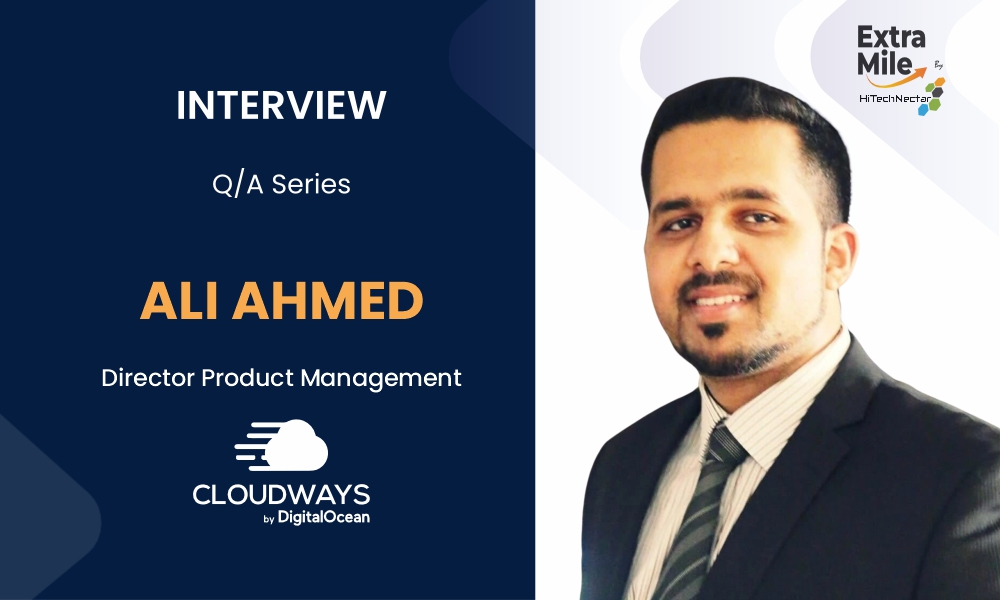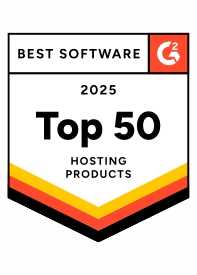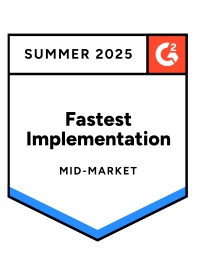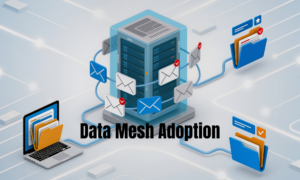ExtraMile by HiTechNectar is a top-rated interview series featuring industry frontrunners, innovators, and experts who are pushing their limits forward in the tech industry. Here, we discuss the latest trends, practices, and success journeys from leaders across diverse industries.
For today’s conversation, we’re super thrilled to have Ali Ahmed, Director of Product Management at Cloudways, join us. Cloudways is a leading managed cloud hosting platform empowering 90k+ customers with the performance, simplicity, and flexibility they need to move their dreams forward.
Today’s guest, Ali, is a brilliant product leader with decades of experience in building and scaling B2B SaaS products. He currently leads product strategy and execution across Cloudways, with a focus on reinventing the category through AI-first capabilities.
Let’s run through his professional journey, Cloudways vision of AI-first managed hosting, growing trend of multi-cloud adoption, and more.
Welcome, Ali, hope you’ve a good time ahead!
Q1. You have an incredible professional journey from starting as a Creative Project Manager to Director of Project Management at Cloudways! What were the significant lessons and strategic mindset shifts that have helped you to go along this path successfully?
Ali. In the beginning, it was all about execution. I looked at my work as a way of learning new things on the job, and it always felt like I was being paid for it. As my career trajectory grew, I started expanding into other verticals, with bigger teams and curiosity about the why began. I then began focusing on finding out the why before chasing the what. I believe that’s how I got into product management and with years of grinding and going through the thick and thin of it all, I made the shift from being the one doing the work to being the one enabling others to succeed. I shifted my thinking to focus on systems and not tasks—started saying no more often and began building leverage through people and not just the effort I put into it. Owning outcomes at a business level and not just at individual level, was perhaps the biggest mindset change for me. I was able to let go of the control and trust the team, while keeping the bigger picture in mind.
Q2. Ali, being a standout Director of Product Management, you’re responsible for Cloudways’ strategy and product vision – what are some of the key pillars guiding your decisions when setting strategic priorities?
Ali. Product strategy, in my opinion, is not about making a decision that sounds the smartest, but about making the right bet, at the right time and for the right reasons. When it comes to setting strategic priorities, my approach revolves around 4 key pillars—customer impact, business alignment, speed to market, and simplicity. In this new age of tech and AI, the needs and expectations of our customers are changing faster than ever and I strongly believe that if a feature or initiative is not genuinely helping customers get faster, safer, and more scalable outcomes, it is not worth giving real estate on the roadmap. Following that, there is alignment with where the business is leading to, and our industry is very quickly shaping in this AI era, per the level of other industries. Not every good idea is a strategic one. We’re building towards a vision of AI-first managed hosting, so our decisions need to move us closer to that. Thirdly, speed to market; and it is truly underrated in my opinion. Even the best ideas can fail if they land too late for end consumers, and I have experienced this firsthand. My priority is to try and ship a prototype as quickly as possible and validate with real-world users. This significantly helps us make data-backed efforts, rather than investing based on gut feeling. And lastly, I always try hard to avoid over-engineering solutions. I believe if we have to explain a feature to a customer without making it easy to understand, we need to rework it. Customers want simplicity over anything.
Q3. From your standpoint, what role does customer feedback play in shaping the product roadmap? How do you ensure it not only impacts your goals but also improves customer satisfaction?
Ali. How to work with customer feedback is definitely one of the most powerful plays every product manager needs in their playbook. I have seen individuals and teams receiving customer feedback as just product specs, which in my opinion is not the correct way of looking at it. I treat it as signals instead. I also tend to review it in tandem with behavioral data to spot patterns and then work backwards from the outcomes. This way, I know I’m solving actual problems and not just responding to requests. Understanding the why behind the feedback is crucial, as in, the real problem that the customer is having, the motivation behind that problem, the job that they are trying to get done etc. Cloudways serves multiple user personas and each persona uses the product differently, which is why I prefer not to treat feedback as isolated tickets, but as pieces of a bigger puzzle.
Q4. The shift towards a multi-cloud environment is indeed a growing trend in cloud computing! What is your opinion on this? Can you share a few key takeaways that are leading organizations to adopt these strategies?
Ali. The 2 biggest benefits that we have, being able to provide to our customers through our multi-cloud offering, are choice and flexibility. And I believe this has been one of our main differentiating factors as well. As mentioned above, Cloudways serves multiple personas and each persona has their own needs. Some customers want the power of hyperscalers, while some prefer affordability. Instead of locking them into a single cloud provider, we have been able to make it easy for our customers to deploy and manage across multiple cloud providers. I think these are the exact reasons why this is now becoming a trend in the cloud computing space.
Q5. AI is advancing all around! Cloudways is already raising the bar of excellence in the AI landscape with initiatives like Cloudways Copilot, an AI-powered diagnostic tool. Could you please share a few insights into this?
Ali. The thought behind Cloudways Copilot Diagnostic was to leverage the power of AI to solve actual customer problems, and not just help them with generating the first draft of their websites; which others are already provideing. Through our deep-dive, we concluded that for one reason or the other customers’ websites experience crashes and with that downtime, business losses become apparent—the longer the downtime, the higher the loss. We wanted to eliminate that downtime and Cloudways Copilot is our first step towards doing that. Using the power of agentic AI, it spots issues, troubleshoots and provides insights around the root cause behind the issue and gives recommendations on how the issue can be solved.
Q6. Ali, what are the common challenges SMBs, bloggers, or first-time online hustlers face when managing hosting? How does Cloudways reduce some of their pain-points while counting on speed, reliability and support?
Ali. Most SMBs, bloggers, and first-time digital entrepreneurs don’t wake up thinking, “I can’t wait to manage a server today.” Their focus is to grow their businesses, not to manage the servers and applications. In most cases, these personas are not technical, meaning even something as simple as installing an SSL or taking a backup can feel like navigating a maze to them. At Cloudways, we prioritize simplicity over anything, and that’s because Cloudways was built with these personas in mind. The webstack that we have built and optimized for years is to ensure that the websites of our customers are optimized for speed, performance and reliability out-of-the-box, without having them to fiddle around with the settings to get the desired performance results. Autonomous, which is one of our recently launched products, is a great example where we have completely abstracted the infra management layer for our customers so that they don’t have to wear the devops engineer or server admin hat to have a fast, reliable and secure website.
Q7. Can you tell us more about ‘Cloudways Autoscale’ – what sparked this product idea? How is the beta phase going? Can you tell us more about ‘Cloudways Autonomous’ – what sparked this product idea?
Ali. The idea for Cloudways Autonomous originated when we went to the drawing board to solve two core problems for managed hosting users – (1) making managed hosting even more simpler and (2) ensuring that the infra scales, as the needs of a business’ website scale. The first problem was around the learning curve that users had to go through in order to manage their websites. For non-technical users it was too steep of a learning curve and even for users who are technical but do not want to invest any time in server and application management; instead want to focus on growing their business, managed hosting generally required them to give time to server and application tweaking in order to get the desired performance. The second problem was around the hard limits of infrastructure limiting the website performance in cases where websites get traffic spikes, where users had to manually scale up the servers to meet the traffic needs and then scale it down once traffic goes away. Autonomous solves these 2 core pain points by offering a fully managed hosting experience to users by abstracting the infra and application management layers, and by offering true autoscaling so that the resources scale up automatically to keep the website performant in case of traffic spikes and scale down automatically when traffic goes away. In essence, Autonomous is our answer to a new generation of users who value simplicity and scalability above anything else. It’s for people who want their site to grow with their business, without needing to manage or even understand the infrastructure beneath it.
Q8. You brilliantly lead a diverse team of product managers at Cloudways! How do you ensure they’re motivated, growing, and aligned with Cloudways’ vision?
Ali. Leading a team of product managers is part strategy, part psychology, and a lot of listening. Everyone on the team has different personality, different strengths and weaknesses and different methods of approaching problems, and I think this variance brings a sort of unified strength to the team. It is like a true team sport where we win as a team and learn as a team. My approach generally is to bring clarity and direction to the team through product strategy and product vision and then rely on their superpowers to solve the problems for our customers. This way I ensure they not only own the different value streams within our product but also own the outcomes and this brings motivation at an individual level. I think it is really important as a leader to play around the strengths of the individuals and find learning and growth opportunities out of their weaknesses. I consider myself incredibly lucky to have worked under some truly inspirational leaders throughout my career and I try to pay that forward to my team at Cloudways.
Explore Our Other Insightful Interviews:


























